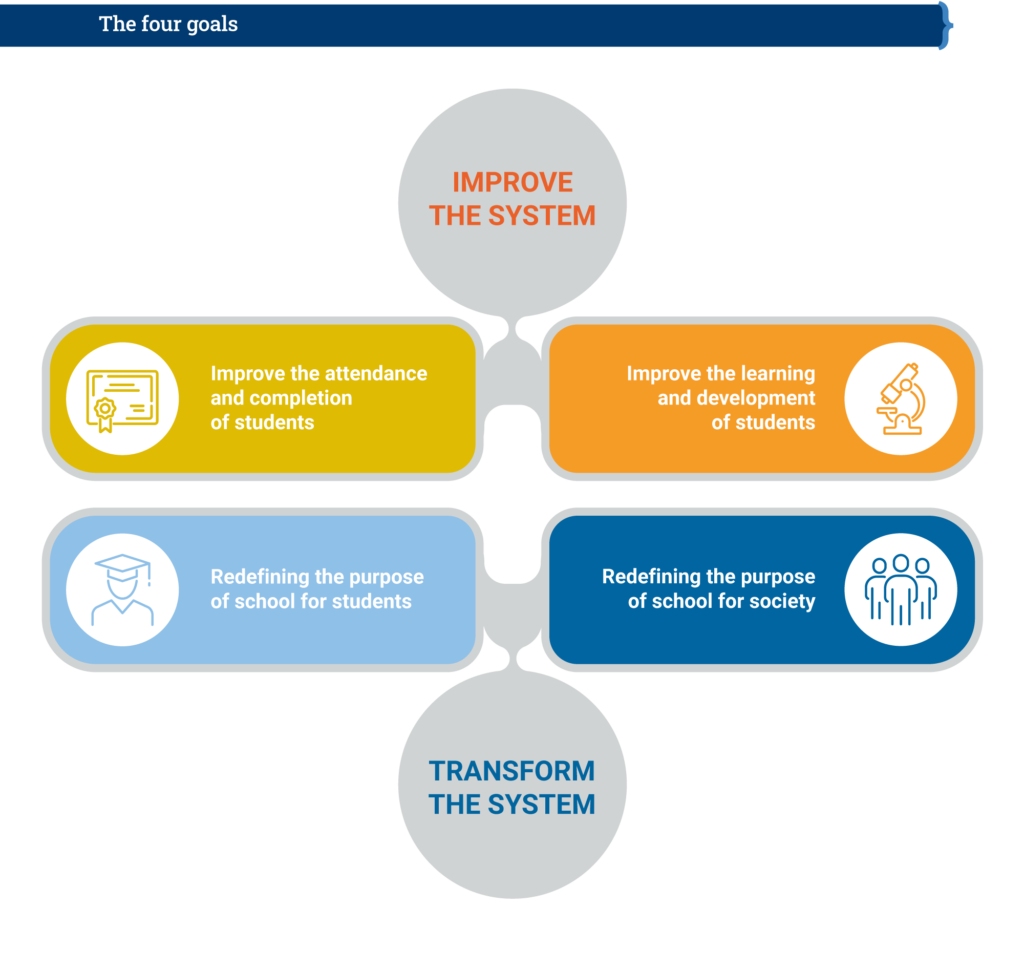Following a long period of discussion – which drew in figures from the political right and left, educators and academics – Finland abolished its fee-paying schools and instituted a nationwide comprehensive system from the early 1970s onwards.
Before that, most education in Finland came through private institutions. Afterwards, all teachers were well paid through a government program. They became highly respected, well trained, and free in their teaching methods. They no longer used standardized testing. But the best part of the system is that parents, whether rich or poor, want good schools, because their children must attend. Education is paid by government funding through university. The society as a whole supports this system.
In effect, Finland’s system borrows the best from both capitalism and socialism. The government pays from the tax system, and the people get the same education, whether rich or poor. Unlike the U.S. system, the wealthy support a better public system, because they cannot pay for a private one. Yet the government thumb does not oppress the system; the teachers are the ones responsible for making the teaching system work. As a result, Finland’s system is highly successful. That success points the way towards improvements to the U.S. education system. But more importantly, perhaps, it shows how other systems can operate more successfully that they are today.
Finland has a very successful medical system. Only 3% of the hospitals are privately run, and only 10% of doctors have private practices. However, fees of private physicians are covered in the same way as are fees of public doctors and hospitals.
Very poor patients only have to pay what they can. Patients who have money must pay a low-price fee.
It would seem that the medical system could be “no fee” as is the education system. But establishing a fee encourages people not to make unnecessary calls upon the system. For the most part, the medical system seems to run pretty much as does the education system.
One might look at the way the driving system works in the U.S. We pay for our licenses and we pay taxes on our cars. And we do pay for some parking. But for the most part we do not pay individually for the use of the roads, and public parking on the streets has its limits although it is basically free. One can imagine a system which charged us separately for every mile driven. That would certainly cause people to think twice about driving everywhere. But it would make the car system much more difficult.
Then there is the U.S. medical system, which is very costly and not nearly as good as systems in other countries. Unlike Finland’s education system, which has few private doctors or hospitals, but has one national insurer, the U.S. has many private clinics and doctors as well as a multitude of insurers. Having a lot of insurers makes billing expensive and the system complex.
Suppose all doctors and hospitals were paid directly from a single source, and all patients were automatically covered? The doctors would be responsible for operating the hospitals. Billing as such would disappear. Everyone would be covered at a price each could afford, regardless of the personal medical condition.
The rich would get the same treatment as the poor unless they wanted to go overseas and pay out of pocket. But the norm would be that all patients would want the best treatment available, and that would be what we would get.
What other services would be better handled with a system like the Finland education system? Certainly we should have our communication system (telephones, computers, television) handled that way. Everyone should have a reasonable annual payment, or else the payment should be made from taxes and the use should be free.
That doesn’t mean that people could have fifteen computers and five telephones, but they could all have a reasonable number for personal use and the cost should be covered out of government payment.
These systems should not be privately owned or operated any more than schools should. If the society wants advertising to continue through television, radio and computers, so be it. That could be part of the system. If so, however, no one should be able to pay separately to be “add free.”
I would certainly be in favor of state run banks, so that the wealthy would no longer have a private source of funds. But that’s entirely another question. What we can see here is that there are many systems in our society and economy that could be made easier and more fair if they were to adopt the Finland education model. Those of us on the political left should think seriously about how those results could be made reality.
(Michael T. Hertz has lived and worked in USA and France, mostly as a lawyer and law professor. Courtesy: LA Progressive. LA Progressive was founded by Dick and Sharon whose mission is to provide a platform for progressive thought, opinion and perspectives on current events.)




